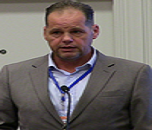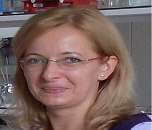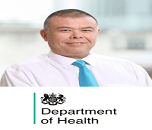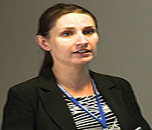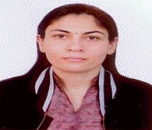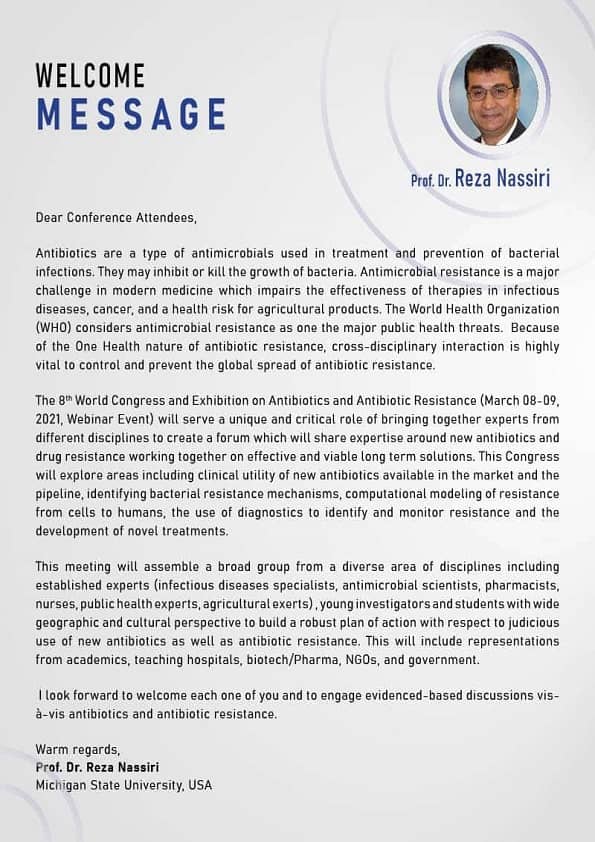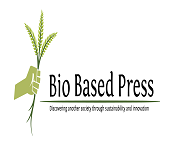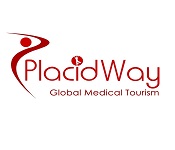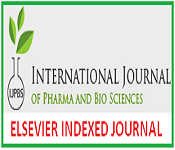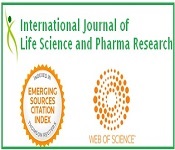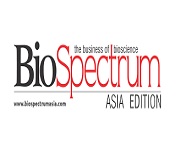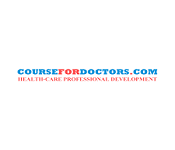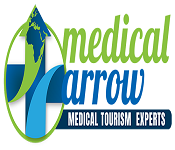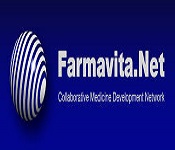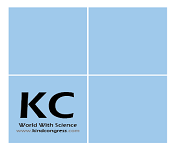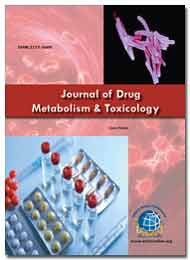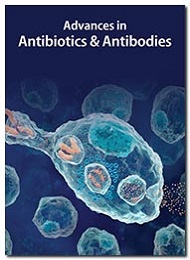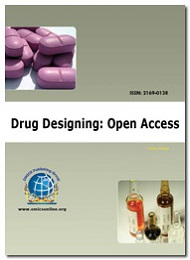Theme: Current Research: Tackling Antibiotic Resistance and COVID-19
Antibiotics 2021
After a successful conference of Antibiotics 2020, we are currently bringing forth “8th World Congress and Exhibition on Antibiotics and Antibiotic Resistance” (Antibiotics 2021) slated on March 08-09, 2021 | Webinar. Antibiotics 2021 welcomes attendees, participants, students, speakers, organizing committee members, delegates from all over the world. We welcome you and appreciate your participation at the Antibiotics Webinar event and it will be organized around the theme "Current Research: Tackling Antibiotic Resistance and COVID-19" which includes prompt Keynote presentations, Oral talks, Poster presentations and Exhibitions.
Antibiotics 2021 will be organizing webinars by offering virtual platform to all academicians, researchers, industry professional, and scholars. Webinars will be scheduled on wide range of topics and it will be helpful for scientific fraternity to be connected while staying at their preferred place. Join the webinars organized by us and let the world know about your research and innovation. The Antibiotics 2021 conference hosting presentations from editors of eminent refereed journals, renowned and active investigators and decision makers in the field of Pharmacology, Infectious Diseases, Microbiology, Immunology, Bacteriology and many more. Antibiotics 2021 Organizing Committee also invites young investigators at each and every career stage to submit abstracts reporting their latest scientific research in oral and poster sessions.
We organize a series of 3000+ Global Events inclusive of 1000+ Conferences, 500+ Upcoming and Previous Symposiums and Workshops in USA, Europe & Asia with support from 1000 more scientific societies and publishes 700+ Open access Journals which contains over 50000 eminent personalities, reputed scientists as editorial board members.
Antibiotics 2021 is intended to honour prestigious award for talented Young researchers, Scientists, Young Investigators, Post-Graduate students, Post-doctoral fellows, Trainees, junior faculty in recognition of their outstanding contribution towards the conference theme. The Young Scientist Awards make every effort in providing a strong professional development opportunity for early career academicians by meeting experts to exchange and share their experiences on all aspects of Pharmacology.
Young Research’s Awards at Antibiotics 2021 for the Nomination:
Young Researcher Forum - Outstanding Masters/Ph.D./Post Doctorate thesis work Presentation and only 25 presentations acceptable at the Antibiotics 2021.
YRF Registration benefits:
- Our conferences provide best Platform for your research through oral presentations.
- Share the ideas with both eminent researchers and mentors.
- Young Scientist Award reorganization certificate and memento to the winners
- Young Scientists will get appropriate and timely information by this Forum.
- Platform for collaboration among young researchers for better development
- Award should motivate participants to strive to realize their full potential which could in turn be beneficial to the field as whole.
YRF Registration Deadline:
Till December 30 – $399
Till January 30 – $499
Till March 07– $599
Why to attend?
Antibiotics 2021 is a platform to discuss and learn about the latest advancements in the field of Antibiotics and Antibiotic Resistance as the world’s consideration turned regarding the urgency of new antibiotics as the antimicrobial resistance is growing day by day. Many developed nations and International health organizations are trying to focus of the current situation and making new policies to prevent the adverse effects of Antibiotic resistance.
The 2-day conference gathers Researchers, academia, labs, Drug Manufacturers, government agencies, health professionals, hospitals, young investigators, Pharma and labs and presents their opinions through key notes, and case study presentations. This conference lays a platform for all the researchers working in the field of Antibiotics to know the latest developments and the current situation of the Antibiotic resistance problem.
Target Audience
Healthcare Students, Scientists, and professors
Doctors
Infectious diseases specialists
Public health experts
Laboratorist
Faculty of Bacteriology and Infectious Diseases
Medical Colleges
Healthcare Associations and Societies
Business Entrepreneurs
Conference Opportunities
Symposium hosting (4-5 member Teams)
For Researchers and Faculty Members
For Universities, Associations & Societies:
For Students and Research Scholars:
Poster Competition (Winner will get Best Poster Award)
Young Researcher Forum (YRF Award to the best presenter)
For Business Delegates:
For Product Manufacturers:
After a successful conference of Antibiotics 2020, we are currently bringing forth “8th World Congress and Exhibition on Antibiotics and Antibiotic Resistance” (Antibiotics 2021) slated on March 08-09, 2021 | Webinar. Antibiotics 2021 aims to gather attendees, participants, students, and speakers, organizing committee members, delegates, most elegant societies and industries, renowned and honourable persons from top universities across the globe to this webinar event. We are delighted to invite you to our 8th World Congress and Exhibition on Antibiotics and Antibiotic Resistance on March 08-09, 2021.
Antibiotics 2021 covers various aspects of Antibiotics, Antimicrobial Therapy, Antimicrobial Peptides, Antibiotics for Emerging & Re-Emerging Diseases, Drug Discovery Technologies in Antibiotics, Antibiotic production and Delivery method, Microorganisms Producing Antibiotics, Applications of Antibiotics, Pharmacokinetics and Pharmacodynamics of Antimicrobial drugs, Veterinary Importance of Antibiotics, Antibiotics for Oncology, Antibiotics Overuse and Resistance, Antibiotic-resistant Bacterial infections, Mechanism and Evolution of Antibiotic Resistance, Genetics of Antibiotic Resistance, Clinical Trials of Antibiotics, Clinical and Economic Burden of Antibiotic Resistance, Antibiotics: Market Analysis & Business Opportunities, Prevention and Control of Antibiotic resistance, New antibiotics and non-antibiotic approaches, Current research in antibiotic resistance, The Next Generation Approach of Antibiotics, Developing Alternatives to Antibiotics.
Track 1: COVID-19 AND ANTIBIOTIC RESISTANCE
The coronavirus COVID-19 pandemic is the defining global health crisis of our time and the greatest challenge we have faced since World War Two. During the current COVID-19 pandemic there are potential threats that could affect antimicrobial stewardship activities and drive antimicrobial resistance. The use of antibiotics in people with COVID-19 could result in increased resistance to the drugs' benefits among the wider population. Patients hospitalized as a result of the virus are being given a combination of medications to prevent possible secondary bacterial infections.
Antibiotics underpin all of modern medicine, but AMR is an issue that could impact millions of lives in the decades to come. Currently, the COVID-19 pandemic is causing immense suffering and loss of life across the globe, but AMR has been and will remain one of the most significant threats to global human health.
Related Conferences: Antibiotics March 08-09, 2021 | Pharmaceutica March 15-16, 2021 | Chromatography March 15-16, 2021 | Materials Chemistry March 26-27, 2021 | Euro Biosimilars April 28-29, 2021 | Pharma Europe 2021, April 28-29, 2021 | Industrial Chemistry May 24-25, 2021 | Pharmaceutical Sciences June 16-17, 2021 | Natural Products June 16-17, 2021 | Euro Chemistry June 21-22, 2021 | Medicinal Chemistry July 07-08, 2021 | Mass Spectra July 07-08, 2021 | Organic Chemistry July 26-27, 2021 |Pain Management August 02-03, 2021 | Pharmacology August 16-17, 2021 | Environmental Chemistry September 08-09, 2021 | Physical Chemistry September 13-14, 2021 | Pharmacovigilance September 15-16, 2021 | Formulations September 15-16, 2021 | Separation Techniques October 22-23, 2021 | Pharma Chemistry October 25-26, 2021 | Clinical Research November 15-16, 2021
Related Societies:
Societies in USA:
Alliance for the Prudent Use of Antibiotics (APUA), Centers for Disease Control and Prevention (CDC), U.S. Food and Drug Administration (FDA), Transatlantic task force on urgent antimicrobial resistance (TATFAR), Global Antibiotic Resistance Partnership (GARP), Center for a Livable Future (CLF), Infectious Diseases Society of America
Societies in Europe:
The World Alliance Against Antibiotic Resistance (WAAAR), Antibiotic Research UK (ANTRUK), BEAM Alliance (Biotechs from Europe innovating in anti-microbial resistance), ReAct – Action on Antibiotics, Compassion in World Farming (CIWF)
Societies in Asia and Pacific:
Australian Society of Antimicrobials, Australasian Society for Infectious Diseases, The Philippine Society for Microbiology, Israel Society for Microbiology (ISM), Chinese Society for Microbiology (CSM), Iranian Society of Microbiology
Track 2: MRSA
Methicillin-Resistant Staphylococcus Aureus (MRSA) is a form of contagious bacterial infection. People sometimes call it a superbug because it is resistant to numerous antibiotics. In healthy people, MRSA does not usually cause a severe infection, but older people, individuals with health conditions, and those with a weakened immune system may be at risk. MRSA is a common and potentially serious infection that has developed resistance to several types of antibiotics. These include methicillin and related antibiotics, such as Penicillin, Vancomycin, and Oxacillin. This resistance makes MRSA difficult to treat.
Most MRSA infections occur in people who've been in hospitals or other health care settings, such as nursing homes and dialysis centers. When it occurs in these settings, it's known as health care-associated MRSA (HA-MRSA). HA-MRSA infections typically are associated with invasive procedures or devices, such as surgeries, intravenous tubing or artificial joints. Another type of MRSA infection has occurred in the wider community among healthy people. This form, community-associated MRSA (CA-MRSA), often begins as a painful skin boil. It's spread by skin-to-skin contact.
- MRSA
- Health care-Associated MRSA (HA-MRSA)
- Community-Associated MRSA (CA-MRSA)
- Sepsis
- Pneumonia
Related Conferences: Antibiotics March 08-09, 2021 | Pharmaceutica March 15-16, 2021 | Chromatography March 15-16, 2021 | Materials Chemistry March 26-27, 2021 | Euro Biosimilars April 28-29, 2021 | Pharma Europe 2021, April 28-29, 2021 | Industrial Chemistry May 24-25, 2021 | Pharmaceutical Sciences June 16-17, 2021 | Natural Products June 16-17, 2021 | Euro Chemistry June 21-22, 2021 | Medicinal Chemistry July 07-08, 2021 | Mass Spectra July 07-08, 2021 | Organic Chemistry July 26-27, 2021 |Pain Management August 02-03, 2021 | Pharmacology August 16-17, 2021 | Environmental Chemistry September 08-09, 2021 | Physical Chemistry September 13-14, 2021 | Pharmacovigilance September 15-16, 2021 | Formulations September 15-16, 2021 | Separation Techniques October 22-23, 2021 | Pharma Chemistry October 25-26, 2021 | Clinical Research November 15-16, 2021
Related Societies:
Societies in USA:
Alliance for the Prudent Use of Antibiotics (APUA), Centers for Disease Control and Prevention (CDC), U.S. Food and Drug Administration (FDA), Transatlantic task force on urgent antimicrobial resistance (TATFAR), Global Antibiotic Resistance Partnership (GARP), Center for a Livable Future (CLF), Infectious Diseases Society of America
Societies in Europe:
The World Alliance Against Antibiotic Resistance (WAAAR), Antibiotic Research UK (ANTRUK), BEAM Alliance (Biotechs from Europe innovating in anti-microbial resistance), ReAct – Action on Antibiotics, Compassion in World Farming (CIWF)
Societies in Asia and Pacific:
Australian Society of Antimicrobials, Australasian Society for Infectious Diseases, The Philippine Society for Microbiology, Israel Society for Microbiology (ISM), Chinese Society for Microbiology (CSM), Iranian Society of Microbiology
Track 3: ANTIBIOTICS
Antibiotics are a type of antimicrobials used in treatment and prevention of bacterial infections. They may inhibit or kill the growth of bacteria. Many antibiotics are also effective against protozoans and fungi; some are toxic to animals and humans also, even when given in therapeutic dosage. Antibiotics are not effective against viruses such as influenza or common cold, and may be harmful when taken inappropriately. Physicians must ensure the patient has a bacterial infection before prescribing antibiotics.
- Antibiotics Classification
- Antibiotics Types
- Side effects of antibiotics
- Antibiotic Drug interactions
- Antibiotic Tests and Treatment
Related Conferences: Antibiotics March 08-09, 2021 | Pharmaceutica March 15-16, 2021 | Chromatography March 15-16, 2021 | Materials Chemistry March 26-27, 2021 | Euro Biosimilars April 28-29, 2021 | Pharma Europe 2021, April 28-29, 2021 | Industrial Chemistry May 24-25, 2021 | Pharmaceutical Sciences June 16-17, 2021 | Natural Products June 16-17, 2021 | Euro Chemistry June 21-22, 2021 | Medicinal Chemistry July 07-08, 2021 | Mass Spectra July 07-08, 2021 | Organic Chemistry July 26-27, 2021 |Pain Management August 02-03, 2021 | Pharmacology August 16-17, 2021 | Environmental Chemistry September 08-09, 2021 | Physical Chemistry September 13-14, 2021 | Pharmacovigilance September 15-16, 2021 | Formulations September 15-16, 2021 | Separation Techniques October 22-23, 2021 | Pharma Chemistry October 25-26, 2021 | Clinical Research November 15-16, 2021
Related Societies:
Societies in USA:
Alliance for the Prudent Use of Antibiotics (APUA), Centers for Disease Control and Prevention (CDC), U.S. Food and Drug Administration (FDA), Transatlantic task force on urgent antimicrobial resistance (TATFAR), Global Antibiotic Resistance Partnership (GARP), Center for a Livable Future (CLF), Infectious Diseases Society of America
Societies in Europe:
The World Alliance Against Antibiotic Resistance (WAAAR), Antibiotic Research UK (ANTRUK), BEAM Alliance (Biotechs from Europe innovating in anti-microbial resistance), ReAct – Action on Antibiotics, Compassion in World Farming (CIWF)
Societies in Asia and Pacific:
Australian Society of Antimicrobials, Australasian Society for Infectious Diseases, The Philippine Society for Microbiology, Israel Society for Microbiology (ISM), Chinese Society for Microbiology (CSM), Iranian Society of Microbiology
Track 4: VACCINES AND IMMUNIZATION
Immunization is a global health and development success story, saving millions of lives every year. Vaccines reduce risks of getting a disease by working with your body’s natural defences to build protection. When you get a vaccine, your immune system responds. We now have vaccines to prevent more than 20 life-threatening diseases, helping people of all ages live longer, healthier lives. Immunization currently prevents 2-3 million deaths every year from diseases like Diphtheria, Tetanus, Pertussis, Influenza and Measles.
Immunization is a key component of primary health care and an indisputable human right. It’s also one of the best health investments money can buy. Vaccines are also critical to the prevention and control of infectious-disease outbreaks. They underpin global health security and will be a vital tool in the battle against antimicrobial resistance.
Related Conferences: Antibiotics March 08-09, 2021 | Pharmaceutica March 15-16, 2021 | Chromatography March 15-16, 2021 | Materials Chemistry March 26-27, 2021 | Euro Biosimilars April 28-29, 2021 | Pharma Europe 2021, April 28-29, 2021 | Industrial Chemistry May 24-25, 2021 | Pharmaceutical Sciences June 16-17, 2021 | Natural Products June 16-17, 2021 | Euro Chemistry June 21-22, 2021 | Medicinal Chemistry July 07-08, 2021 | Mass Spectra July 07-08, 2021 | Organic Chemistry July 26-27, 2021 |Pain Management August 02-03, 2021 | Pharmacology August 16-17, 2021 | Environmental Chemistry September 08-09, 2021 | Physical Chemistry September 13-14, 2021 | Pharmacovigilance September 15-16, 2021 | Formulations September 15-16, 2021 | Separation Techniques October 22-23, 2021 | Pharma Chemistry October 25-26, 2021 | Clinical Research November 15-16, 2021
Related Societies:
Societies in USA:
Alliance for the Prudent Use of Antibiotics (APUA), Centers for Disease Control and Prevention (CDC), U.S. Food and Drug Administration (FDA), Transatlantic task force on urgent antimicrobial resistance (TATFAR), Global Antibiotic Resistance Partnership (GARP), Center for a Livable Future (CLF), Infectious Diseases Society of America
Societies in Europe:
The World Alliance Against Antibiotic Resistance (WAAAR), Antibiotic Research UK (ANTRUK), BEAM Alliance (Biotechs from Europe innovating in anti-microbial resistance), ReAct – Action on Antibiotics, Compassion in World Farming (CIWF)
Societies in Asia and Pacific:
Australian Society of Antimicrobials, Australasian Society for Infectious Diseases, The Philippine Society for Microbiology, Israel Society for Microbiology (ISM), Chinese Society for Microbiology (CSM), Iranian Society of Microbiology
Track 5: INFECTIOUS DISEASES
Infectious Diseases are disorders caused by organisms such as bacteria, viruses, fungi, or parasites. Infectious diseases may be of water borne, food borne, vector borne, air borne in human beings as well as in plants and animals. Infectious diseases basically emphasize on the pathogenesis of the bacteria and their therapeutic measures, coalesce of branches of Microbiology especially Clinical and Diagnostic Microbiology which deals with the cure and prevention of the Infectious diseases. It represents an increasingly important cause of human morbidity and mortality throughout the world. Vaccine development is thus of great importance in terms of global health.
Reproductive Infectious Diseases
Related Conferences: Antibiotics March 08-09, 2021 | Pharmaceutica March 15-16, 2021 | Chromatography March 15-16, 2021 | Materials Chemistry March 26-27, 2021 | Euro Biosimilars April 28-29, 2021 | Pharma Europe 2021, April 28-29, 2021 | Industrial Chemistry May 24-25, 2021 | Pharmaceutical Sciences June 16-17, 2021 | Natural Products June 16-17, 2021 | Euro Chemistry June 21-22, 2021 | Medicinal Chemistry July 07-08, 2021 | Mass Spectra July 07-08, 2021 | Organic Chemistry July 26-27, 2021 |Pain Management August 02-03, 2021 | Pharmacology August 16-17, 2021 | Environmental Chemistry September 08-09, 2021 | Physical Chemistry September 13-14, 2021 | Pharmacovigilance September 15-16, 2021 | Formulations September 15-16, 2021 | Separation Techniques October 22-23, 2021 | Pharma Chemistry October 25-26, 2021 | Clinical Research November 15-16, 2021
Related Societies:
Societies in USA:
Alliance for the Prudent Use of Antibiotics (APUA), Centers for Disease Control and Prevention (CDC), U.S. Food and Drug Administration (FDA), Transatlantic task force on urgent antimicrobial resistance (TATFAR), Global Antibiotic Resistance Partnership (GARP), Center for a Livable Future (CLF), Infectious Diseases Society of America
Societies in Europe:
The World Alliance Against Antibiotic Resistance (WAAAR), Antibiotic Research UK (ANTRUK), BEAM Alliance (Biotechs from Europe innovating in anti-microbial resistance), ReAct – Action on Antibiotics, Compassion in World Farming (CIWF)
Societies in Asia and Pacific:
Australian Society of Antimicrobials, Australasian Society for Infectious Diseases, The Philippine Society for Microbiology, Israel Society for Microbiology (ISM), Chinese Society for Microbiology (CSM), Iranian Society of Microbiology
Track 6: ANTIMICROBIAL THERAPY
An antimicrobial therapy kills or inhibits the growth of microorganisms such as bacteria, fungi, or protozoans. Antimicrobial agents are some of the most widely, and often used therapeutic drugs worldwide. It contributes significantly to the quality of life of many people and reduces the morbidity and mortality due to infectious disease. The remarkable success of antimicrobial therapy has been achieved with comparatively little toxicity and expense.
- Antimicrobial agents
- Use of Antimicrobial Combinations
- Pharmacodynamics Characteristics
- Efficacy at the Site of Infection
- Common Misuses of Antibiotics
Related Conferences: Antibiotics March 08-09, 2021 | Pharmaceutica March 15-16, 2021 | Chromatography March 15-16, 2021 | Materials Chemistry March 26-27, 2021 | Euro Biosimilars April 28-29, 2021 | Pharma Europe 2021, April 28-29, 2021 | Industrial Chemistry May 24-25, 2021 | Pharmaceutical Sciences June 16-17, 2021 | Natural Products June 16-17, 2021 | Euro Chemistry June 21-22, 2021 | Medicinal Chemistry July 07-08, 2021 | Mass Spectra July 07-08, 2021 | Organic Chemistry July 26-27, 2021 |Pain Management August 02-03, 2021 | Pharmacology August 16-17, 2021 | Environmental Chemistry September 08-09, 2021 | Physical Chemistry September 13-14, 2021 | Pharmacovigilance September 15-16, 2021 | Formulations September 15-16, 2021 | Separation Techniques October 22-23, 2021 | Pharma Chemistry October 25-26, 2021 | Clinical Research November 15-16, 2021
Related Societies:
Societies in USA:
Alliance for the Prudent Use of Antibiotics (APUA), Centers for Disease Control and Prevention (CDC), U.S. Food and Drug Administration (FDA), Transatlantic task force on urgent antimicrobial resistance (TATFAR), Global Antibiotic Resistance Partnership (GARP), Center for a Livable Future (CLF), Infectious Diseases Society of America
Societies in Europe:
The World Alliance Against Antibiotic Resistance (WAAAR), Antibiotic Research UK (ANTRUK), BEAM Alliance (Biotechs from Europe innovating in anti-microbial resistance), ReAct – Action on Antibiotics, Compassion in World Farming (CIWF)
Societies in Asia and Pacific:
Australian Society of Antimicrobials, Australasian Society for Infectious Diseases, The Philippine Society for Microbiology, Israel Society for Microbiology (ISM), Chinese Society for Microbiology (CSM), Iranian Society of Microbiology
Track 7: ANTIMICROBIAL PEPTIDES
Antimicrobial peptides (AMPs), also called Host Defence Peptides (HDPs) are part of the innate immune response found among all classes of life. AMPs have a broad spectrum of targeted organisms ranging from viruses to parasites. These peptides are potent, broad spectrum antibiotics which demonstrate potential as novel therapeutic agents. Unlike the majority of conventional antibiotics it appears that antimicrobial peptides frequently destabilize biological membranes, can form transmembrane channels, and may also have the ability to enhance immunity by functioning as Immunomodulatory.
- Structure and Major Activities of AMPs
- Major Categories of AMPs
- Mechanism of Action of AMPs
- New Targets of AMPs
- Resistance to Antimicrobial Peptides
Related Conferences: Antibiotics March 08-09, 2021 | Pharmaceutica March 15-16, 2021 | Chromatography March 15-16, 2021 | Materials Chemistry March 26-27, 2021 | Euro Biosimilars April 28-29, 2021 | Pharma Europe 2021, April 28-29, 2021 | Industrial Chemistry May 24-25, 2021 | Pharmaceutical Sciences June 16-17, 2021 | Natural Products June 16-17, 2021 | Euro Chemistry June 21-22, 2021 | Medicinal Chemistry July 07-08, 2021 | Mass Spectra July 07-08, 2021 | Organic Chemistry July 26-27, 2021 |Pain Management August 02-03, 2021 | Pharmacology August 16-17, 2021 | Environmental Chemistry September 08-09, 2021 | Physical Chemistry September 13-14, 2021 | Pharmacovigilance September 15-16, 2021 | Formulations September 15-16, 2021 | Separation Techniques October 22-23, 2021 | Pharma Chemistry October 25-26, 2021 | Clinical Research November 15-16, 2021
Related Societies:
Societies in USA:
Alliance for the Prudent Use of Antibiotics (APUA), Centers for Disease Control and Prevention (CDC), U.S. Food and Drug Administration (FDA), Transatlantic task force on urgent antimicrobial resistance (TATFAR), Global Antibiotic Resistance Partnership (GARP), Center for a Livable Future (CLF), Infectious Diseases Society of America
Societies in Europe:
The World Alliance Against Antibiotic Resistance (WAAAR), Antibiotic Research UK (ANTRUK), BEAM Alliance (Biotechs from Europe innovating in anti-microbial resistance), ReAct – Action on Antibiotics, Compassion in World Farming (CIWF)
Societies in Asia and Pacific:
Australian Society of Antimicrobials, Australasian Society for Infectious Diseases, The Philippine Society for Microbiology, Israel Society for Microbiology (ISM), Chinese Society for Microbiology (CSM), Iranian Society of Microbiology
Track 8: ANTIBIOTICS FOR EMERGING & RE-EMERGING DISEASES
Antimicrobial agents play vital roles in decreasing human morbidity and mortality resulting from infectious diseases. Emerging and re-emerging infectious diseases are global problems, and a constant supply of new antibiotics is essential if we are to combat these diseases successfully. The session is open to discuss on synthetic tailoring, discovery of new scaffolds, designing screens that avoid rediscovering old scaffolds, repurposing libraries of synthetic molecules for use as antibiotics, Exploring microbial niches for products, molecular target selection, improving libraries to overcome resistance, Safety and efficacy, Vaccines available for the diseases, Phage’s and parasitic bacteria, Epidemiology and spread of microbes and resistance traits.
- Antimicrobial resistance (AMR)
- Emerging infectious diseases
- Reemerging infectious diseases
- Emergence of Antimicrobial Resistance
- Mechanisms of Antimicrobial Resistance
Related Conferences: Antibiotics March 08-09, 2021 | Pharmaceutica March 15-16, 2021 | Chromatography March 15-16, 2021 | Materials Chemistry March 26-27, 2021 | Euro Biosimilars April 28-29, 2021 | Pharma Europe 2021, April 28-29, 2021 | Industrial Chemistry May 24-25, 2021 | Pharmaceutical Sciences June 16-17, 2021 | Natural Products June 16-17, 2021 | Euro Chemistry June 21-22, 2021 | Medicinal Chemistry July 07-08, 2021 | Mass Spectra July 07-08, 2021 | Organic Chemistry July 26-27, 2021 |Pain Management August 02-03, 2021 | Pharmacology August 16-17, 2021 | Environmental Chemistry September 08-09, 2021 | Physical Chemistry September 13-14, 2021 | Pharmacovigilance September 15-16, 2021 | Formulations September 15-16, 2021 | Separation Techniques October 22-23, 2021 | Pharma Chemistry October 25-26, 2021 | Clinical Research November 15-16, 2021
Related Societies:
Societies in USA:
Alliance for the Prudent Use of Antibiotics (APUA), Centers for Disease Control and Prevention (CDC), U.S. Food and Drug Administration (FDA), Transatlantic task force on urgent antimicrobial resistance (TATFAR), Global Antibiotic Resistance Partnership (GARP), Center for a Livable Future (CLF), Infectious Diseases Society of America
Societies in Europe:
The World Alliance Against Antibiotic Resistance (WAAAR), Antibiotic Research UK (ANTRUK), BEAM Alliance (Biotechs from Europe innovating in anti-microbial resistance), ReAct – Action on Antibiotics, Compassion in World Farming (CIWF)
Societies in Asia and Pacific:
Australian Society of Antimicrobials, Australasian Society for Infectious Diseases, The Philippine Society for Microbiology, Israel Society for Microbiology (ISM), Chinese Society for Microbiology (CSM), Iranian Society of Microbiology
Track 9: DRUG DISCOVERY TECHNOLOGIES IN ANTIBIOTICS
Infectious diseases account for nearly one fifth of the worldwide death toll every year. The constant increase of drugâ€resistant pathogens is a big challenge for treatment of infectious diseases. In addition, outbreaks of infections and new pathogens are potential threats to public health. Lack of effective treatments for drugâ€resistant bacteria and recent outbreaks of Ebola and Zika viral infections have become a global public health concern. The number of newly approved antibiotics has decreased significantly in the last two decades compared with previous decades. In parallel with this, is an increase in the number of drugâ€resistant bacteria. For these threats and challenges to be countered, new strategies and technology platforms are critically needed. Drug remodelling has emerged as an approach for rapid identification of effective therapeutics to treat the infectious diseases.
- Drug Discovery Technologies
- Applications to exploit actinomycetes as a resource for new antibiotics
- Antimicrobials by immune stimulation
- Molecular and functional genomic approaches to novel antibacterial target discovery
- Improved microbial identification
Related Conferences: Antibiotics March 08-09, 2021 | Pharmaceutica March 15-16, 2021 | Chromatography March 15-16, 2021 | Materials Chemistry March 26-27, 2021 | Euro Biosimilars April 28-29, 2021 | Pharma Europe 2021, April 28-29, 2021 | Industrial Chemistry May 24-25, 2021 | Pharmaceutical Sciences June 16-17, 2021 | Natural Products June 16-17, 2021 | Euro Chemistry June 21-22, 2021 | Medicinal Chemistry July 07-08, 2021 | Mass Spectra July 07-08, 2021 | Organic Chemistry July 26-27, 2021 |Pain Management August 02-03, 2021 | Pharmacology August 16-17, 2021 | Environmental Chemistry September 08-09, 2021 | Physical Chemistry September 13-14, 2021 | Pharmacovigilance September 15-16, 2021 | Formulations September 15-16, 2021 | Separation Techniques October 22-23, 2021 | Pharma Chemistry October 25-26, 2021 | Clinical Research November 15-16, 2021
Related Societies:
Societies in USA:
Alliance for the Prudent Use of Antibiotics (APUA), Centers for Disease Control and Prevention (CDC), U.S. Food and Drug Administration (FDA), Transatlantic task force on urgent antimicrobial resistance (TATFAR), Global Antibiotic Resistance Partnership (GARP), Center for a Livable Future (CLF), Infectious Diseases Society of America
Societies in Europe:
The World Alliance Against Antibiotic Resistance (WAAAR), Antibiotic Research UK (ANTRUK), BEAM Alliance (Biotechs from Europe innovating in anti-microbial resistance), ReAct – Action on Antibiotics, Compassion in World Farming (CIWF)
Societies in Asia and Pacific:
Australasian Society for Infectious Diseases, The Philippine Society for Microbiology, Israel Society for Microbiology (ISM), Chinese Society for Microbiology (CSM), Iranian Society of Microbiology
Track 10: ANTIBIOTIC PRODUCTION AND DELIVERY METHOD
Antibiotic production can be grouped into three methods: natural fermentation, semi-synthetic, and synthetic. As more and more bacteria continue to develop resistance to currently produced antibiotics, research and development of new antibiotics continues to be important. In addition to research and development into the production of new antibiotics, repackaging delivery systems is important to improving efficacy of the antibiotics that are currently produced. Improvements to this field have seen the ability to add antibiotics directly into implanted devices, aerosolization of antibiotics for direct delivery, and combination of antibiotics with non-antibiotics to improve outcomes.
- Identifying useful Antibiotics
- Industrial production techniques
- Strains used for the production
- Aerosolization
- Meropenem
Related Conferences: Antibiotics March 08-09, 2021 | Pharmaceutica March 15-16, 2021 | Chromatography March 15-16, 2021 | Materials Chemistry March 26-27, 2021 | Euro Biosimilars April 28-29, 2021 | Pharma Europe 2021, April 28-29, 2021 | Industrial Chemistry May 24-25, 2021 | Pharmaceutical Sciences June 16-17, 2021 | Natural Products June 16-17, 2021 | Euro Chemistry June 21-22, 2021 | Medicinal Chemistry July 07-08, 2021 | Mass Spectra July 07-08, 2021 | Organic Chemistry July 26-27, 2021 |Pain Management August 02-03, 2021 | Pharmacology August 16-17, 2021 | Environmental Chemistry September 08-09, 2021 | Physical Chemistry September 13-14, 2021 | Pharmacovigilance September 15-16, 2021 | Formulations September 15-16, 2021 | Separation Techniques October 22-23, 2021 | Pharma Chemistry October 25-26, 2021 | Clinical Research November 15-16, 2021
Related Societies:
Societies in USA:
Alliance for the Prudent Use of Antibiotics (APUA), Centers for Disease Control and Prevention (CDC), U.S. Food and Drug Administration (FDA), Transatlantic task force on urgent antimicrobial resistance (TATFAR), Global Antibiotic Resistance Partnership (GARP), Center for a Livable Future (CLF), Infectious Diseases Society of America
Societies in Europe:
The World Alliance Against Antibiotic Resistance (WAAAR), Antibiotic Research UK (ANTRUK), BEAM Alliance (Biotechs from Europe innovating in anti-microbial resistance), ReAct – Action on Antibiotics, Compassion in World Farming (CIWF)
Societies in Asia and Pacific:
Australian Society of Antimicrobials, Australasian Society for Infectious Diseases, The Philippine Society for Microbiology, Israel Society for Microbiology (ISM), Chinese Society for Microbiology (CSM), Iranian Society of Microbiology
Track 11: MICROORGANISMS PRODUCING ANTIBIOTICS
Antibiotic is one of the most important commercially exploited secondary metabolites produced by bacteria, fungi and Streptomyces and employed in a wide range. Most of the antibiotics used today are from the microorganisms that live in soil. Bacteria are easy to isolate, culture, maintain and to improve their strain. The main producers of the microbial metabolites, the actinobacteria, fungi and other filamentous bacteria, represent inexhaustible sources for the future.
- Acremonium chrysogenum
- Streptomyces hygroscopicus
- Streptomyces erythreus
- Streptomyces griseus
- Streptomyces aureofaciens
- Streptomyces orientalis
Related Conferences: Antibiotics March 08-09, 2021 | Pharmaceutica March 15-16, 2021 | Chromatography March 15-16, 2021 | Materials Chemistry March 26-27, 2021 | Euro Biosimilars April 28-29, 2021 | Pharma Europe 2021, April 28-29, 2021 | Industrial Chemistry May 24-25, 2021 | Pharmaceutical Sciences June 16-17, 2021 | Natural Products June 16-17, 2021 | Euro Chemistry June 21-22, 2021 | Medicinal Chemistry July 07-08, 2021 | Mass Spectra July 07-08, 2021 | Organic Chemistry July 26-27, 2021 |Pain Management August 02-03, 2021 | Pharmacology August 16-17, 2021 | Environmental Chemistry September 08-09, 2021 | Physical Chemistry September 13-14, 2021 | Pharmacovigilance September 15-16, 2021 | Formulations September 15-16, 2021 | Separation Techniques October 22-23, 2021 | Pharma Chemistry October 25-26, 2021 | Clinical Research November 15-16, 2021
Related Societies:
Societies in USA:
Alliance for the Prudent Use of Antibiotics (APUA), Centers for Disease Control and Prevention (CDC), U.S. Food and Drug Administration (FDA), Transatlantic task force on urgent antimicrobial resistance (TATFAR), Global Antibiotic Resistance Partnership (GARP), Center for a Livable Future (CLF), Infectious Diseases Society of America
Societies in Europe:
The World Alliance Against Antibiotic Resistance (WAAAR), Antibiotic Research UK (ANTRUK), BEAM Alliance (Biotechs from Europe innovating in anti-microbial resistance), ReAct – Action on Antibiotics, Compassion in World Farming (CIWF)
Societies in Asia and Pacific:
Australian Society of Antimicrobials, Australasian Society for Infectious Diseases, The Philippine Society for Microbiology, Israel Society for Microbiology (ISM), Chinese Society for Microbiology (CSM), Iranian Society of Microbiology
Track 12: APPLICATIONS OF ANTIBIOTICS
Antibiotics are used commercially, potentially useful in medicine for activities other than their antimicrobial action. They are used as antitumor agents, enzyme inhibitors including powerful hypocholesterolemic agents, immunosuppressive agents, and anti-migraine agents, etc. This session mainly is to focus on the application of anti-bacterials, antifungals, and anti-cancers with their clinical use to date, including the development history, side effects, and etc. The antibiotics were classified by their uses, structure types, and molecular mechanisms.
- Antitumor antibiotics
- Food preservative antibiotics
- Antibiotics as veterinary medicine
- Antibiotics for control of plant diseases
- Antibiotics as tools in molecular biology
Related Conferences: Antibiotics March 08-09, 2021 | Pharmaceutica March 15-16, 2021 | Chromatography March 15-16, 2021 | Materials Chemistry March 26-27, 2021 | Euro Biosimilars April 28-29, 2021 | Pharma Europe 2021, April 28-29, 2021 | Industrial Chemistry May 24-25, 2021 | Pharmaceutical Sciences June 16-17, 2021 | Natural Products June 16-17, 2021 | Euro Chemistry June 21-22, 2021 | Medicinal Chemistry July 07-08, 2021 | Mass Spectra July 07-08, 2021 | Organic Chemistry July 26-27, 2021 |Pain Management August 02-03, 2021 | Pharmacology August 16-17, 2021 | Environmental Chemistry September 08-09, 2021 | Physical Chemistry September 13-14, 2021 | Pharmacovigilance September 15-16, 2021 | Formulations September 15-16, 2021 | Separation Techniques October 22-23, 2021 | Pharma Chemistry October 25-26, 2021 | Clinical Research November 15-16, 2021
Related Societies:
Societies in USA:
Alliance for the Prudent Use of Antibiotics (APUA), Centers for Disease Control and Prevention (CDC), U.S. Food and Drug Administration (FDA), Transatlantic task force on urgent antimicrobial resistance (TATFAR), Global Antibiotic Resistance Partnership (GARP), Center for a Livable Future (CLF), Infectious Diseases Society of America
Societies in Europe:
The World Alliance Against Antibiotic Resistance (WAAAR), Antibiotic Research UK (ANTRUK), BEAM Alliance (Biotechs from Europe innovating in anti-microbial resistance), ReAct – Action on Antibiotics, Compassion in World Farming (CIWF)
Societies in Asia and Pacific:
Australian Society of Antimicrobials, Australasian Society for Infectious Diseases, The Philippine Society for Microbiology, Israel Society for Microbiology (ISM), Chinese Society for Microbiology (CSM), Iranian Society of Microbiology
Track 13: PHARMACOKINETICS AND PHARMACODYNAMICS OF ANTIMICROBIAL DRUGS
The pharmacodynamics of an antimicrobial drug relates its pharmacokinetics to the time course of the antimicrobial effects at the site of the infection. Knowledge of the drug's antimicrobial pharmacodynamics effects provides a more rational basis for determination of optimal dosing regimens in terms of the dose and the dosing interval than do the minimal inhibitory concentrations (MICs) and minimal bactericidal concentrations (MBCs) determined in vitro. This session mainly focus on pharmacokinetics, antimicrobial pharmacodynamics, the effect of pharmacodynamics on the emergence of resistant bacterial subpopulations, and the development of pharmacodynamics breakpoints for use in the design of trials of these drugs and in the treatment of infected patients.
- Pharmacokinetics
- Pharmacodynamics
- Antimicrobial susceptibility
- Concentration-dependent antimicrobial activity
- Time-dependent antimicrobial activity
Related Conferences: Antibiotics March 08-09, 2021 | Pharmaceutica March 15-16, 2021 | Chromatography March 15-16, 2021 | Materials Chemistry March 26-27, 2021 | Euro Biosimilars April 28-29, 2021 | Pharma Europe 2021, April 28-29, 2021 | Industrial Chemistry May 24-25, 2021 | Pharmaceutical Sciences June 16-17, 2021 | Natural Products June 16-17, 2021 | Euro Chemistry June 21-22, 2021 | Medicinal Chemistry July 07-08, 2021 | Mass Spectra July 07-08, 2021 | Organic Chemistry July 26-27, 2021 |Pain Management August 02-03, 2021 | Pharmacology August 16-17, 2021 | Environmental Chemistry September 08-09, 2021 | Physical Chemistry September 13-14, 2021 | Pharmacovigilance September 15-16, 2021 | Formulations September 15-16, 2021 | Separation Techniques October 22-23, 2021 | Pharma Chemistry October 25-26, 2021 | Clinical Research November 15-16, 2021
Related Societies:
Societies in USA:
Alliance for the Prudent Use of Antibiotics (APUA), Centers for Disease Control and Prevention (CDC), U.S. Food and Drug Administration (FDA), Transatlantic task force on urgent antimicrobial resistance (TATFAR), Global Antibiotic Resistance Partnership (GARP), Center for a Livable Future (CLF), Infectious Diseases Society of America
Societies in Europe:
The World Alliance Against Antibiotic Resistance (WAAAR), Antibiotic Research UK (ANTRUK), BEAM Alliance (Biotechs from Europe innovating in anti-microbial resistance), ReAct – Action on Antibiotics, Compassion in World Farming (CIWF)
Societies in Asia and Pacific:
Australian Society of Antimicrobials, Australasian Society for Infectious Diseases, The Philippine Society for Microbiology, Israel Society for Microbiology (ISM), Chinese Society for Microbiology (CSM), Iranian Society of Microbiology
Track 14: VETERINARY IMPORTANCE OF ANTIBIOTICS
Antibiotics are used in livestock production for two basic reasons: disease treatment and disease prevention. Just like humans, animals are prone to bacterial infections. As in human medicine, antibiotics are used to effectively treat those infections. In livestock production, antibiotics can also be used to prevent disease. There are times in an animal’s life, such as weaning, where certain diseases can be very common. Antibiotics are sometimes used to prevent these diseases from becoming established in the first place.
- Aminoglycosides
- Beta Lactam Antibiotics
- Chloramphenicol
- Diaminopyrimidines (Trimethoprim)
- Glycopeptides
Related Conferences: Antibiotics March 08-09, 2021 | Pharmaceutica March 15-16, 2021 | Chromatography March 15-16, 2021 | Materials Chemistry March 26-27, 2021 | Euro Biosimilars April 28-29, 2021 | Pharma Europe 2021, April 28-29, 2021 | Industrial Chemistry May 24-25, 2021 | Pharmaceutical Sciences June 16-17, 2021 | Natural Products June 16-17, 2021 | Euro Chemistry June 21-22, 2021 | Medicinal Chemistry July 07-08, 2021 | Mass Spectra July 07-08, 2021 | Organic Chemistry July 26-27, 2021 |Pain Management August 02-03, 2021 | Pharmacology August 16-17, 2021 | Environmental Chemistry September 08-09, 2021 | Physical Chemistry September 13-14, 2021 | Pharmacovigilance September 15-16, 2021 | Formulations September 15-16, 2021 | Separation Techniques October 22-23, 2021 | Pharma Chemistry October 25-26, 2021 | Clinical Research November 15-16, 2021
Related Societies:
Societies in USA:
Alliance for the Prudent Use of Antibiotics (APUA), Centers for Disease Control and Prevention (CDC), U.S. Food and Drug Administration (FDA), Transatlantic task force on urgent antimicrobial resistance (TATFAR), Global Antibiotic Resistance Partnership (GARP), Center for a Livable Future (CLF), Infectious Diseases Society of America
Societies in Europe:
The World Alliance Against Antibiotic Resistance (WAAAR), Antibiotic Research UK (ANTRUK), BEAM Alliance (Biotechs from Europe innovating in anti-microbial resistance), ReAct – Action on Antibiotics, Compassion in World Farming (CIWF)
Societies in Asia and Pacific:
Australian Society of Antimicrobials, Australasian Society for Infectious Diseases, The Philippine Society for Microbiology, Israel Society for Microbiology (ISM), Chinese Society for Microbiology (CSM), Iranian Society of Microbiology
Track 15: ANTIBIOTICS FOR ONCOLOGY
An antibiotic is a chemical made by a microbe that antagonizes the growth of other cells. They reduce the viability and clonal expansion of cancer stem cells is of broad importance, as cancer stem cells are increasingly accepted as a distinct cell type that gives rise to therapy resistance, tumour recurrence and distant metastasis. Therapeutic anticancer antibiotics have become an accepted treatment for certain types of cancer. These drugs bind specifically to primary and metastatic cancer cells to block cell growth, while limiting effects on surrounding healthy cells. Antibiotic medicines kill malignant cells by fragmenting the DNA in the cell nucleus and by oxidizing critical compounds which are necessary for the cell. Antibiotics are used against leukaemia, bladder cancer, testicular cancer, and sarcomas.
Related Conferences: Antibiotics March 08-09, 2021 | Pharmaceutica March 15-16, 2021 | Chromatography March 15-16, 2021 | Materials Chemistry March 26-27, 2021 | Euro Biosimilars April 28-29, 2021 | Pharma Europe 2021, April 28-29, 2021 | Industrial Chemistry May 24-25, 2021 | Pharmaceutical Sciences June 16-17, 2021 | Natural Products June 16-17, 2021 | Euro Chemistry June 21-22, 2021 | Medicinal Chemistry July 07-08, 2021 | Mass Spectra July 07-08, 2021 | Organic Chemistry July 26-27, 2021 |Pain Management August 02-03, 2021 | Pharmacology August 16-17, 2021 | Environmental Chemistry September 08-09, 2021 | Physical Chemistry September 13-14, 2021 | Pharmacovigilance September 15-16, 2021 | Formulations September 15-16, 2021 | Separation Techniques October 22-23, 2021 | Pharma Chemistry October 25-26, 2021 | Clinical Research November 15-16, 2021
Related Societies:
Societies in USA:
Alliance for the Prudent Use of Antibiotics (APUA), Centers for Disease Control and Prevention (CDC), U.S. Food and Drug Administration (FDA), Transatlantic task force on urgent antimicrobial resistance (TATFAR), Global Antibiotic Resistance Partnership (GARP), Center for a Livable Future (CLF), Infectious Diseases Society of America
Societies in Europe:
The World Alliance Against Antibiotic Resistance (WAAAR), Antibiotic Research UK (ANTRUK), BEAM Alliance (Biotechs from Europe innovating in anti-microbial resistance), ReAct – Action on Antibiotics, Compassion in World Farming (CIWF)
Societies in Asia and Pacific:
Australian Society of Antimicrobials, Australasian Society for Infectious Diseases, The Philippine Society for Microbiology, Israel Society for Microbiology (ISM), Chinese Society for Microbiology (CSM), Iranian Society of Microbiology
Track 16: ANTIBIOTICS OVERUSE AND RESISTANCE
Antibiotic overuse is when antibiotics are used when they're not needed. Antibiotics are one of the great advances in medicine. But overprescribing them has led to resistant bacteria (bacteria that are harder to treat). Some germs that were once very responsive to antibiotics have become more and more resistant. Antibiotic overuse is a key driver of antimicrobial resistance. Antibiotic resistance occurs when bacteria change in response to the use of these medicines. Antibiotic resistance occurs naturally, but misuse of antibiotics in humans and animals is accelerating the process. Antibiotic resistance leads to longer hospital stays, higher medical costs and increased mortality.
- Overuse and overprescribing of antibiotics
- Antibiotic resistance
- Superbugs and Super resistance
- Risks of antibiotic over usage
- Prevention and control
Related Conferences: Antibiotics March 08-09, 2021 | Pharmaceutica March 15-16, 2021 | Chromatography March 15-16, 2021 | Materials Chemistry March 26-27, 2021 | Euro Biosimilars April 28-29, 2021 | Pharma Europe 2021, April 28-29, 2021 | Industrial Chemistry May 24-25, 2021 | Pharmaceutical Sciences June 16-17, 2021 | Natural Products June 16-17, 2021 | Euro Chemistry June 21-22, 2021 | Medicinal Chemistry July 07-08, 2021 | Mass Spectra July 07-08, 2021 | Organic Chemistry July 26-27, 2021 |Pain Management August 02-03, 2021 | Pharmacology August 16-17, 2021 | Environmental Chemistry September 08-09, 2021 | Physical Chemistry September 13-14, 2021 | Pharmacovigilance September 15-16, 2021 | Formulations September 15-16, 2021 | Separation Techniques October 22-23, 2021 | Pharma Chemistry October 25-26, 2021 | Clinical Research November 15-16, 2021
Related Societies:
Societies in USA:
Alliance for the Prudent Use of Antibiotics (APUA), Centers for Disease Control and Prevention (CDC), U.S. Food and Drug Administration (FDA), Transatlantic task force on urgent antimicrobial resistance (TATFAR), Global Antibiotic Resistance Partnership (GARP), Center for a Livable Future (CLF), Infectious Diseases Society of America
Societies in Europe:
The World Alliance Against Antibiotic Resistance (WAAAR), Antibiotic Research UK (ANTRUK), BEAM Alliance (Biotechs from Europe innovating in anti-microbial resistance), ReAct – Action on Antibiotics, Compassion in World Farming (CIWF)
Societies in Asia and Pacific:
Australian Society of Antimicrobials, Australasian Society for Infectious Diseases, The Philippine Society for Microbiology, Israel Society for Microbiology (ISM), Chinese Society for Microbiology (CSM), Iranian Society of Microbiology
Track 17: ANTIBIOTIC-RESISTANT BACTERIAL INFECTIONS
Antibiotics have been used to treat people with infectious diseases caused by bacteria. However, certain antibiotics have been used so widely and for so long that some bacteria that cause disease have become resistant to them, making these treatments less effective. Antibiotic resistance occurs when the medication loses its ability to kill bacteria. As a result, the organisms continue to grow and cause infection, even in the presence of the antibiotic.
- Antibiotic Resistant Bacteria
- Multidrug-resistant bacteria
- Methicillin-Resistant Staphylococcus Aureus
- Streptococcus Pneumoniae
- Carbapenem-Resistant Enterobacteriaceae
Related Conferences: Antibiotics March 08-09, 2021 | Pharmaceutica March 15-16, 2021 | Chromatography March 15-16, 2021 | Materials Chemistry March 26-27, 2021 | Euro Biosimilars April 28-29, 2021 | Pharma Europe 2021, April 28-29, 2021 | Industrial Chemistry May 24-25, 2021 | Pharmaceutical Sciences June 16-17, 2021 | Natural Products June 16-17, 2021 | Euro Chemistry June 21-22, 2021 | Medicinal Chemistry July 07-08, 2021 | Mass Spectra July 07-08, 2021 | Organic Chemistry July 26-27, 2021 |Pain Management August 02-03, 2021 | Pharmacology August 16-17, 2021 | Environmental Chemistry September 08-09, 2021 | Physical Chemistry September 13-14, 2021 | Pharmacovigilance September 15-16, 2021 | Formulations September 15-16, 2021 | Separation Techniques October 22-23, 2021 | Pharma Chemistry October 25-26, 2021 | Clinical Research November 15-16, 2021
Related Societies:
Societies in USA:
Alliance for the Prudent Use of Antibiotics (APUA), Centers for Disease Control and Prevention (CDC), U.S. Food and Drug Administration (FDA), Transatlantic task force on urgent antimicrobial resistance (TATFAR), Global Antibiotic Resistance Partnership (GARP), Center for a Livable Future (CLF), Infectious Diseases Society of America
Societies in Europe:
The World Alliance Against Antibiotic Resistance (WAAAR), Antibiotic Research UK (ANTRUK), BEAM Alliance (Biotechs from Europe innovating in anti-microbial resistance), ReAct – Action on Antibiotics, Compassion in World Farming (CIWF)
Societies in Asia and Pacific:
Australian Society of Antimicrobials, Australasian Society for Infectious Diseases, The Philippine Society for Microbiology, Israel Society for Microbiology (ISM), Chinese Society for Microbiology (CSM), Iranian Society of Microbiology
Track 18: MECHANISM AND EVOLUTION OF ANTIBIOTIC RESISTANCE
Antibiotics target essential cellular functions but bacteria can become resistant by acquiring either exogenous resistance genes or chromosomal mutations. Resistance mutations typically occur in genes encoding essential functions; these mutations are therefore generally detrimental in the absence of drugs. However, bacteria can reduce this handicap by acquiring additional mutations, known as compensatory mutations. Genetic interactions (epistasis) either with the background or between resistances (in multiresistant bacteria) dramatically affect the fitness cost of antibiotic resistance and its compensation, therefore shaping dissemination of antibiotic resistance mutations.
- Enzymatic degradation of antibacterial drugs
- Alteration of bacterial proteins
- Changes in membrane permeability to antibiotics
- Exogenous resistance genes
- Chromosomal mutations
- Epistasis
Related Conferences: Antibiotics March 08-09, 2021 | Pharmaceutica March 15-16, 2021 | Chromatography March 15-16, 2021 | Materials Chemistry March 26-27, 2021 | Euro Biosimilars April 28-29, 2021 | Pharma Europe 2021, April 28-29, 2021 | Industrial Chemistry May 24-25, 2021 | Pharmaceutical Sciences June 16-17, 2021 | Natural Products June 16-17, 2021 | Euro Chemistry June 21-22, 2021 | Medicinal Chemistry July 07-08, 2021 | Mass Spectra July 07-08, 2021 | Organic Chemistry July 26-27, 2021 |Pain Management August 02-03, 2021 | Pharmacology August 16-17, 2021 | Environmental Chemistry September 08-09, 2021 | Physical Chemistry September 13-14, 2021 | Pharmacovigilance September 15-16, 2021 | Formulations September 15-16, 2021 | Separation Techniques October 22-23, 2021 | Pharma Chemistry October 25-26, 2021 | Clinical Research November 15-16, 2021
Related Societies:
Societies in USA:
Alliance for the Prudent Use of Antibiotics (APUA), Centers for Disease Control and Prevention (CDC), U.S. Food and Drug Administration (FDA), Transatlantic task force on urgent antimicrobial resistance (TATFAR), Global Antibiotic Resistance Partnership (GARP), Center for a Livable Future (CLF), Infectious Diseases Society of America
Societies in Europe:
The World Alliance Against Antibiotic Resistance (WAAAR), Antibiotic Research UK (ANTRUK), BEAM Alliance (Biotechs from Europe innovating in anti-microbial resistance), ReAct – Action on Antibiotics, Compassion in World Farming (CIWF)
Societies in Asia and Pacific:
Australian Society of Antimicrobials, Australasian Society for Infectious Diseases, The Philippine Society for Microbiology, Israel Society for Microbiology (ISM), Chinese Society for Microbiology (CSM), Iranian Society of Microbiology
Track 19: GENETICS OF ANTIBIOTIC RESISTANCE
Acquired bacterial antibiotic resistance can result from the mutation of normal cellular genes, the acquisition of foreign resistance genes, or a combination of these two mechanisms. The most common resistance mechanisms employed by bacteria include enzymatic degradation or alteration of the antimicrobial, mutation in the antimicrobial target site, decreased cell wall permeability to antimicrobials, and active efflux of the antimicrobial across the cell membrane. The spread of mobile genetic elements such as plasmids, transposons, and integrons has greatly contributed to the rapid dissemination of antimicrobial resistance among several bacterial genera of human and veterinary importance.
- Antibiotic resistance genes
- Horizontal genetic transfers
- Multidrug-resistant genes
- Resistance-nodulation-division
- β-lactamases
Related Conferences: Antibiotics March 08-09, 2021 | Pharmaceutica March 15-16, 2021 | Chromatography March 15-16, 2021 | Materials Chemistry March 26-27, 2021 | Euro Biosimilars April 28-29, 2021 | Pharma Europe 2021, April 28-29, 2021 | Industrial Chemistry May 24-25, 2021 | Pharmaceutical Sciences June 16-17, 2021 | Natural Products June 16-17, 2021 | Euro Chemistry June 21-22, 2021 | Medicinal Chemistry July 07-08, 2021 | Mass Spectra July 07-08, 2021 | Organic Chemistry July 26-27, 2021 |Pain Management August 02-03, 2021 | Pharmacology August 16-17, 2021 | Environmental Chemistry September 08-09, 2021 | Physical Chemistry September 13-14, 2021 | Pharmacovigilance September 15-16, 2021 | Formulations September 15-16, 2021 | Separation Techniques October 22-23, 2021 | Pharma Chemistry October 25-26, 2021 | Clinical Research November 15-16, 2021
Related Societies:
Societies in USA:
Alliance for the Prudent Use of Antibiotics (APUA), Centers for Disease Control and Prevention (CDC), U.S. Food and Drug Administration (FDA), Transatlantic task force on urgent antimicrobial resistance (TATFAR), Global Antibiotic Resistance Partnership (GARP), Center for a Livable Future (CLF), Infectious Diseases Society of America
Societies in Europe:
The World Alliance Against Antibiotic Resistance (WAAAR), Antibiotic Research UK (ANTRUK), BEAM Alliance (Biotechs from Europe innovating in anti-microbial resistance), ReAct – Action on Antibiotics, Compassion in World Farming (CIWF)
Societies in Asia and Pacific:
Australian Society of Antimicrobials, Australasian Society for Infectious Diseases, The Philippine Society for Microbiology, Israel Society for Microbiology (ISM), Chinese Society for Microbiology (CSM), Iranian Society of Microbiology
Track 20: CLINICAL TRIALS OF ANTIBIOTICS
There has been an increasing use of antibiotics in all areas of medicine. Clinical trials to test antibiotics are normally of a less than satisfactory quality. The main objective of initial clinical trials, at least, is to provide the pharmaceutical company with sufficient information to persuade the regulatory authority that the drug is effective, safe and well produced.
- Factors in the Designing the antibiotics
- Genomic screening and information technology
- Randomized clinical trials
- Phases of clinical trials
- Interpretation of the clinical trials
- Drug Evaluation
Related Conferences: Antibiotics March 08-09, 2021 | Pharmaceutica March 15-16, 2021 | Chromatography March 15-16, 2021 | Materials Chemistry March 26-27, 2021 | Euro Biosimilars April 28-29, 2021 | Pharma Europe 2021, April 28-29, 2021 | Industrial Chemistry May 24-25, 2021 | Pharmaceutical Sciences June 16-17, 2021 | Natural Products June 16-17, 2021 | Euro Chemistry June 21-22, 2021 | Medicinal Chemistry July 07-08, 2021 | Mass Spectra July 07-08, 2021 | Organic Chemistry July 26-27, 2021 |Pain Management August 02-03, 2021 | Pharmacology August 16-17, 2021 | Environmental Chemistry September 08-09, 2021 | Physical Chemistry September 13-14, 2021 | Pharmacovigilance September 15-16, 2021 | Formulations September 15-16, 2021 | Separation Techniques October 22-23, 2021 | Pharma Chemistry October 25-26, 2021 | Clinical Research November 15-16, 2021
Related Societies:
Societies in USA:
Alliance for the Prudent Use of Antibiotics (APUA), Centers for Disease Control and Prevention (CDC), U.S. Food and Drug Administration (FDA), Transatlantic task force on urgent antimicrobial resistance (TATFAR), Global Antibiotic Resistance Partnership (GARP), Center for a Livable Future (CLF), Infectious Diseases Society of America
Societies in Europe:
The World Alliance Against Antibiotic Resistance (WAAAR), Antibiotic Research UK (ANTRUK), BEAM Alliance (Biotechs from Europe innovating in anti-microbial resistance), ReAct – Action on Antibiotics, Compassion in World Farming (CIWF)
Societies in Asia and Pacific:
Australian Society of Antimicrobials, Australasian Society for Infectious Diseases, The Philippine Society for Microbiology, Israel Society for Microbiology (ISM), Chinese Society for Microbiology (CSM), Iranian Society of Microbiology
Track 21: CLINICAL AND ECONOMIC BURDEN OF ANTIBIOTIC RESISTANCE
Knowledge of the clinical and economic impact of antimicrobial resistance is useful to influence programs and behaviour in healthcare facilities, to guide policy makers and funding agencies, to define the prognosis of individual patients and to stimulate interest in developing new antimicrobial agents and therapies. There are a variety of important issues that must be considered when designing or interpreting studies into the clinical and economic outcomes associated with antimicrobial resistance. One of the most misunderstood issues is how to measure cost appropriately. This session mainly focus on variety of important issues that must be considered when designing or interpreting studies of the clinical and economic outcomes associated with antimicrobial resistance.
Related Conferences: Antibiotics March 08-09, 2021 | Pharmaceutica March 15-16, 2021 | Chromatography March 15-16, 2021 | Materials Chemistry March 26-27, 2021 | Euro Biosimilars April 28-29, 2021 | Pharma Europe 2021, April 28-29, 2021 | Industrial Chemistry May 24-25, 2021 | Pharmaceutical Sciences June 16-17, 2021 | Natural Products June 16-17, 2021 | Euro Chemistry June 21-22, 2021 | Medicinal Chemistry July 07-08, 2021 | Mass Spectra July 07-08, 2021 | Organic Chemistry July 26-27, 2021 |Pain Management August 02-03, 2021 | Pharmacology August 16-17, 2021 | Environmental Chemistry September 08-09, 2021 | Physical Chemistry September 13-14, 2021 | Pharmacovigilance September 15-16, 2021 | Formulations September 15-16, 2021 | Separation Techniques October 22-23, 2021 | Pharma Chemistry October 25-26, 2021 | Clinical Research November 15-16, 2021
Related Societies:
Societies in USA:
Alliance for the Prudent Use of Antibiotics (APUA), Centers for Disease Control and Prevention (CDC), U.S. Food and Drug Administration (FDA), Transatlantic task force on urgent antimicrobial resistance (TATFAR), Global Antibiotic Resistance Partnership (GARP), Center for a Livable Future (CLF), Infectious Diseases Society of America
Societies in Europe:
The World Alliance Against Antibiotic Resistance (WAAAR), Antibiotic Research UK (ANTRUK), BEAM Alliance (Biotechs from Europe innovating in anti-microbial resistance), ReAct – Action on Antibiotics, Compassion in World Farming (CIWF)
Societies in Asia and Pacific:
Australian Society of Antimicrobials, Australasian Society for Infectious Diseases, The Philippine Society for Microbiology, Israel Society for Microbiology (ISM), Chinese Society for Microbiology (CSM), Iranian Society of Microbiology
Track 22: ANTIBIOTICS: MARKET ANALYSIS & BUSINESS OPPORTUNITIES
Antibiotic medicines are among the most prescribed courses worldwide, in fighting bacterial infections, primarily in outpatient settings. Pharmaceutical companies are actively developing analogues of existing antibiotic classes based on innovative approaches to fight bacterial infections. Key players operating in the global antibiotic market include Pfizer Inc., Astellas Pharma, Inc, Roche, Novartis AG, Bristol-Myers Squibb Co., Bayer HealthCare AG, Abbott Laboratories, MiddleBrook Pharmaceuticals, Takeda Pharmaceutical Company, Ltd., Daiichi Sankyo Company, Ltd., GlaxoSmithKline Plc, Eli Lilly and Co., and Kyorin Pharmaceutical Co., Ltd. The antibiotics market was valued at USD 39.8 billion in 2015 and is expected to witness a CAGR of 4.0% over the forecast period. Increasing efforts are being witnessed toward the development of advanced products.
- Antibiotics Market analysis
- Business Opportunities
- Key market trends
- Competitive Landscape
- Major players
Related Conferences: Antibiotics March 08-09, 2021 | Pharmaceutica March 15-16, 2021 | Chromatography March 15-16, 2021 | Materials Chemistry March 26-27, 2021 | Euro Biosimilars April 28-29, 2021 | Pharma Europe 2021, April 28-29, 2021 | Industrial Chemistry May 24-25, 2021 | Pharmaceutical Sciences June 16-17, 2021 | Natural Products June 16-17, 2021 | Euro Chemistry June 21-22, 2021 | Medicinal Chemistry July 07-08, 2021 | Mass Spectra July 07-08, 2021 | Organic Chemistry July 26-27, 2021 |Pain Management August 02-03, 2021 | Pharmacology August 16-17, 2021 | Environmental Chemistry September 08-09, 2021 | Physical Chemistry September 13-14, 2021 | Pharmacovigilance September 15-16, 2021 | Formulations September 15-16, 2021 | Separation Techniques October 22-23, 2021 | Pharma Chemistry October 25-26, 2021 | Clinical Research November 15-16, 2021
Related Societies:
Societies in USA:
Alliance for the Prudent Use of Antibiotics (APUA), Centers for Disease Control and Prevention (CDC), U.S. Food and Drug Administration (FDA), Transatlantic task force on urgent antimicrobial resistance (TATFAR), Global Antibiotic Resistance Partnership (GARP), Center for a Livable Future (CLF), Infectious Diseases Society of America
Societies in Europe:
The World Alliance Against Antibiotic Resistance (WAAAR), Antibiotic Research UK (ANTRUK), BEAM Alliance (Biotechs from Europe innovating in anti-microbial resistance), ReAct – Action on Antibiotics, Compassion in World Farming (CIWF)
Societies in Asia and Pacific:
Australian Society of Antimicrobials, Australasian Society for Infectious Diseases, The Philippine Society for Microbiology, Israel Society for Microbiology (ISM), Chinese Society for Microbiology (CSM), Iranian Society of Microbiology
Track 23: PREVENTION AND CONTROL OF ANTIBIOTIC RESISTANCE
Antimicrobial resistance is a complex problem with many diverse contributing factors. It is major cause of health concerns adding cost to oneself and to the community, directly or indirectly. Prevention is still the best tool to reduce the infection spread and thereby AMR. Along with rational use of existing antimicrobial drugs, development of new effective compounds and new diagnostic technology is the need. Joint efforts from patients, prescribers and individuals to international regulators and policy makers are needed to fight against the globally spreading antimicrobial resistance.
- International Measures
- National Strategies
- Action at Community Level
- Rational use of antibiotics
- Good Microbiology Practices
Related Conferences: Antibiotics March 08-09, 2021 | Pharmaceutica March 15-16, 2021 | Chromatography March 15-16, 2021 | Materials Chemistry March 26-27, 2021 | Euro Biosimilars April 28-29, 2021 | Pharma Europe 2021, April 28-29, 2021 | Industrial Chemistry May 24-25, 2021 | Pharmaceutical Sciences June 16-17, 2021 | Natural Products June 16-17, 2021 | Euro Chemistry June 21-22, 2021 | Medicinal Chemistry July 07-08, 2021 | Mass Spectra July 07-08, 2021 | Organic Chemistry July 26-27, 2021 |Pain Management August 02-03, 2021 | Pharmacology August 16-17, 2021 | Environmental Chemistry September 08-09, 2021 | Physical Chemistry September 13-14, 2021 | Pharmacovigilance September 15-16, 2021 | Formulations September 15-16, 2021 | Separation Techniques October 22-23, 2021 | Pharma Chemistry October 25-26, 2021 | Clinical Research November 15-16, 2021
Related Societies:
Societies in USA:
Alliance for the Prudent Use of Antibiotics (APUA), Centers for Disease Control and Prevention (CDC), U.S. Food and Drug Administration (FDA), Transatlantic task force on urgent antimicrobial resistance (TATFAR), Global Antibiotic Resistance Partnership (GARP), Center for a Livable Future (CLF), Infectious Diseases Society of America
Societies in Europe:
The World Alliance Against Antibiotic Resistance (WAAAR), Antibiotic Research UK (ANTRUK), BEAM Alliance (Biotechs from Europe innovating in anti-microbial resistance), ReAct – Action on Antibiotics, Compassion in World Farming (CIWF)
Societies in Asia and Pacific:
Australian Society of Antimicrobials, Australasian Society for Infectious Diseases, The Philippine Society for Microbiology, Israel Society for Microbiology (ISM), Chinese Society for Microbiology (CSM), Iranian Society of Microbiology
Track 24: NEW ANTIBIOTICS AND NON-ANTIBIOTIC APPROACHES
New antibiotics need to be developed, which doctors will be able to use when existing drugs no longer work. Non-antibiotic treatments can also reduce our dependence on antibiotics. The government encourages companies to develop new drugs and treatments. New technologies can also help prevent infections.
- Research collaboration on antibiotic resistance
- Development of new antibiotics
- Non-antibiotic approaches
- New health technologies
Related Conferences: Antibiotics March 08-09, 2021 | Pharmaceutica March 15-16, 2021 | Chromatography March 15-16, 2021 | Materials Chemistry March 26-27, 2021 | Euro Biosimilars April 28-29, 2021 | Pharma Europe 2021, April 28-29, 2021 | Industrial Chemistry May 24-25, 2021 | Pharmaceutical Sciences June 16-17, 2021 | Natural Products June 16-17, 2021 | Euro Chemistry June 21-22, 2021 | Medicinal Chemistry July 07-08, 2021 | Mass Spectra July 07-08, 2021 | Organic Chemistry July 26-27, 2021 |Pain Management August 02-03, 2021 | Pharmacology August 16-17, 2021 | Environmental Chemistry September 08-09, 2021 | Physical Chemistry September 13-14, 2021 | Pharmacovigilance September 15-16, 2021 | Formulations September 15-16, 2021 | Separation Techniques October 22-23, 2021 | Pharma Chemistry October 25-26, 2021 | Clinical Research November 15-16, 2021
Related Societies:
Societies in USA:
Alliance for the Prudent Use of Antibiotics (APUA), Centers for Disease Control and Prevention (CDC), U.S. Food and Drug Administration (FDA), Transatlantic task force on urgent antimicrobial resistance (TATFAR), Global Antibiotic Resistance Partnership (GARP), Center for a Livable Future (CLF), Infectious Diseases Society of America
Societies in Europe:
The World Alliance Against Antibiotic Resistance (WAAAR), Antibiotic Research UK (ANTRUK), BEAM Alliance (Biotechs from Europe innovating in anti-microbial resistance), ReAct – Action on Antibiotics, Compassion in World Farming (CIWF)
Societies in Asia and Pacific:
Australian Society of Antimicrobials, Australasian Society for Infectious Diseases, The Philippine Society for Microbiology, Israel Society for Microbiology (ISM), Chinese Society for Microbiology (CSM), Iranian Society of Microbiology
Track 25: CURRENT RESEARCH IN ANTIBIOTIC RESISTANCE
Antibiotic overuse and misuse has led to a growing number of bacteria in humans, animals and the environment that are resistant to life-saving antimicrobial therapies. Urgent action is needed to halt the development of resistance, and to accelerate new treatments for bacterial infection. Research includes epidemiology of both Gram-negative and Gram-positive infections, genetic mechanisms of resistance, evolution and transmission in the hospital setting, as well as the community, and antimicrobial stewardship.
- Novel antibacterial drug discovery
- Investigating antibiotic use
- Determining minimal-risk policies
- Nutrition as a method of controlling bacterial infections
- Economic implications of bacterial resistance
Related Conferences: Antibiotics March 08-09, 2021 | Pharmaceutica March 15-16, 2021 | Chromatography March 15-16, 2021 | Materials Chemistry March 26-27, 2021 | Euro Biosimilars April 28-29, 2021 | Pharma Europe 2021, April 28-29, 2021 | Industrial Chemistry May 24-25, 2021 | Pharmaceutical Sciences June 16-17, 2021 | Natural Products June 16-17, 2021 | Euro Chemistry June 21-22, 2021 | Medicinal Chemistry July 07-08, 2021 | Mass Spectra July 07-08, 2021 | Organic Chemistry July 26-27, 2021 |Pain Management August 02-03, 2021 | Pharmacology August 16-17, 2021 | Environmental Chemistry September 08-09, 2021 | Physical Chemistry September 13-14, 2021 | Pharmacovigilance September 15-16, 2021 | Formulations September 15-16, 2021 | Separation Techniques October 22-23, 2021 | Pharma Chemistry October 25-26, 2021 | Clinical Research November 15-16, 2021
Related Societies:
Societies in USA:
Alliance for the Prudent Use of Antibiotics (APUA), Centers for Disease Control and Prevention (CDC), U.S. Food and Drug Administration (FDA), Transatlantic task force on urgent antimicrobial resistance (TATFAR), Global Antibiotic Resistance Partnership (GARP), Center for a Livable Future (CLF), Infectious Diseases Society of America
Societies in Europe:
The World Alliance Against Antibiotic Resistance (WAAAR), Antibiotic Research UK (ANTRUK), BEAM Alliance (Biotechs from Europe innovating in anti-microbial resistance), ReAct – Action on Antibiotics, Compassion in World Farming (CIWF)
Societies in Asia and Pacific:
Australian Society of Antimicrobials, Australasian Society for Infectious Diseases, The Philippine Society for Microbiology, Israel Society for Microbiology (ISM), Chinese Society for Microbiology (CSM), Iranian Society of Microbiology
Track 26: THE NEXT GENERATION APPROACH OF ANTIBIOTICS
As research into antibiotic resistance expands, it is important to adopt an explicitly proactive approach to antibiotic resistance identification and surveillance, as well as antibiotic therapy development. This proactive approach involves using a combination of functional metagenomics, next-generation sequencing and cutting-edge computational methods to monitor the evolution and dissemination of resistance before a given resistance determinant emerges in a pathogen or in the clinical setting, as well as proactively developing next-generation therapies that target these resistance determinants. Recent advances in the field highlight the promise that the next generation of resistome studies hold for characterizing and countering emerging resistance threats.
- Next-Generation Sequencing (NGS)
- Functional metagenomics
- Cutting-edge computational methods
- Next-generation surveillance
- Next-generation therapeutics
Related Conferences: Antibiotics March 08-09, 2021 | Pharmaceutica March 15-16, 2021 | Chromatography March 15-16, 2021 | Materials Chemistry March 26-27, 2021 | Euro Biosimilars April 28-29, 2021 | Pharma Europe 2021, April 28-29, 2021 | Industrial Chemistry May 24-25, 2021 | Pharmaceutical Sciences June 16-17, 2021 | Natural Products June 16-17, 2021 | Euro Chemistry June 21-22, 2021 | Medicinal Chemistry July 07-08, 2021 | Mass Spectra July 07-08, 2021 | Organic Chemistry July 26-27, 2021 |Pain Management August 02-03, 2021 | Pharmacology August 16-17, 2021 | Environmental Chemistry September 08-09, 2021 | Physical Chemistry September 13-14, 2021 | Pharmacovigilance September 15-16, 2021 | Formulations September 15-16, 2021 | Separation Techniques October 22-23, 2021 | Pharma Chemistry October 25-26, 2021 | Clinical Research November 15-16, 2021
Related Societies:
Societies in USA:
Alliance for the Prudent Use of Antibiotics (APUA), Centers for Disease Control and Prevention (CDC), U.S. Food and Drug Administration (FDA), Transatlantic task force on urgent antimicrobial resistance (TATFAR), Global Antibiotic Resistance Partnership (GARP), Center for a Livable Future (CLF), Infectious Diseases Society of America
Societies in Europe:
The World Alliance Against Antibiotic Resistance (WAAAR), Antibiotic Research UK (ANTRUK), BEAM Alliance (Biotechs from Europe innovating in anti-microbial resistance), ReAct – Action on Antibiotics, Compassion in World Farming (CIWF)
Societies in Asia and Pacific:
Australian Society of Antimicrobials, Australasian Society for Infectious Diseases, The Philippine Society for Microbiology, Israel Society for Microbiology (ISM), Chinese Society for Microbiology (CSM), Iranian Society of Microbiology
Track 27: DEVELOPING ALTERNATIVES TO ANTIBIOTICS
Alternatives to antibiotics are broadly defined as any substance that can be substituted for therapeutic drugs that are increasingly becoming ineffective against pathogenic bacteria due to antimicrobial resistance. Although antibiotics remain an essential tool for treating animal diseases on the farm, the availability of effective medical interventions to prevent and control animal diseases is one of the most significant challenges facing veterinary medicine in the 21st century. Phytochemicals as antibiotic alternatives to promote growth and enhance host health. Innovative drugs, chemicals, and enzymes within the animal production chain. Vaccines as alternatives to antibiotics for food producing animals. Also recent research provides numerous possibilities for the application nanomaterials in broad-spectrum eradication of pathogenic bacteria with many applications such as skin pathogen infection, implant sterilization, and wastewater treatment.
- Alternatives to Antibiotics
- Phytochemicals
- Nanomaterials
- Antibiotic Growth Promoters (AGPs)
- Plant secondary compounds
Related Conferences: Antibiotics March 08-09, 2021 | Pharmaceutica March 15-16, 2021 | Chromatography March 15-16, 2021 | Materials Chemistry March 26-27, 2021 | Euro Biosimilars April 28-29, 2021 | Pharma Europe 2021, April 28-29, 2021 | Industrial Chemistry May 24-25, 2021 | Pharmaceutical Sciences June 16-17, 2021 | Natural Products June 16-17, 2021 | Euro Chemistry June 21-22, 2021 | Medicinal Chemistry July 07-08, 2021 | Mass Spectra July 07-08, 2021 | Organic Chemistry July 26-27, 2021 |Pain Management August 02-03, 2021 | Pharmacology August 16-17, 2021 | Environmental Chemistry September 08-09, 2021 | Physical Chemistry September 13-14, 2021 | Pharmacovigilance September 15-16, 2021 | Formulations September 15-16, 2021 | Separation Techniques October 22-23, 2021 | Pharma Chemistry October 25-26, 2021 | Clinical Research November 15-16, 2021
Related Societies:
Societies in USA:
Alliance for the Prudent Use of Antibiotics (APUA), Centers for Disease Control and Prevention (CDC), U.S. Food and Drug Administration (FDA), Transatlantic task force on urgent antimicrobial resistance (TATFAR), Global Antibiotic Resistance Partnership (GARP), Center for a Livable Future (CLF), Infectious Diseases Society of America
Societies in Europe:
The World Alliance Against Antibiotic Resistance (WAAAR), Antibiotic Research UK (ANTRUK), BEAM Alliance (Biotechs from Europe innovating in anti-microbial resistance), ReAct – Action on Antibiotics, Compassion in World Farming (CIWF)
Societies in Asia and Pacific:
Australian Society of Antimicrobials, Australasian Society for Infectious Diseases, The Philippine Society for Microbiology, Israel Society for Microbiology (ISM), Chinese Society for Microbiology (CSM), Iranian Society of Microbiology
Antibiotics 2021 Market Analysis
The global antibiotics market was valued at USD 42,653.89 million in 2018, and is estimated to be valued at USD 56,369.92 million in 2024, witnessing a CAGR of 4.7%.The Antibacterial Drugs market is expected to cross US$ 38 Billion by 2024 growing at a CAGR of 1% during the given forecast period. Rising pervasiveness of irresistible illnesses particularly in creating locales, for example, Asia Pacific and MEA is foreseen to contribute towards showcase development.
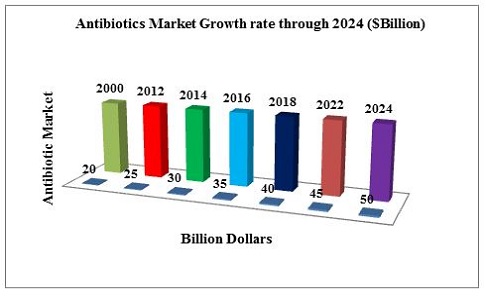
The report covers detailed competitive outlook including the market share and company profiles of the key participants operating in the global market. Key players include Allergen plc, AstraZeneca plc, Bayer AG, Bristol-Myers Squibb Company, Eli Lilly & Co., Forest Laboratories, Inc., GlaxoSmithKline plc, Merck & Co., Inc. Novartis AG, Pfizer, Inc., and Sanofi.
The antibiotics market generated sales of US$42 billion in 2009 globally, representing 46% of sales of anti-infective agents (which also include antiviral drugs and vaccines) and 5% of the global pharmaceutical market. However, the antibiotics market is maturing; it showed an average annual growth of 4% over the past 5 years, compared with a growth of 16.7% and of 16.4% for antiviral drugs and vaccines, respectively.
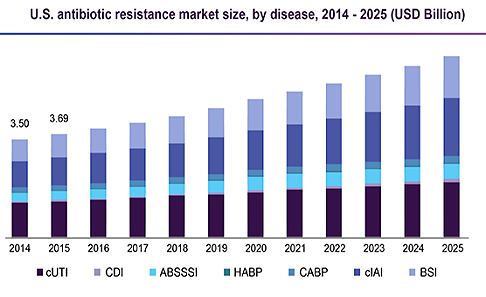
Over 15.0% of the passing’s, in kids underneath the age of five, are assessed to be because of pneumonia and as indicated by the insights given by the WHO around 9.2 million passing’s were recorded in 2015. Like tuberculosis, the most elevated commonness of the sickness is recognized to be in the South Asian and Sub-Saharan locales. At present, the required anti-infection treatment is accessible just to 33% of the tainted populace, subsequently expanding the illness trouble.
The major driving factors of Antibacterial Drugs Market are as follows:
- There is a very high prevalence of infectious diseases.
- The research and development activities have increased.
- Product differentiation through various methods.
- Increased government support.
The restraining factors of Antibacterial drugs Market is as follows:
- Rise in drug resistant species.
- Launch of the generic drugs.
- Patent expiry
Importance and Scope
Antibiotic resistance is rising to dangerously high levels in all parts of the world. New resistance mechanisms are emerging and spreading globally, threatening our ability to treat common infectious diseases. A growing list of infections such as pneumonia, tuberculosis, blood poisoning, gonorrhoea, and foodborne diseases are becoming harder, and sometimes impossible, to treat as antibiotics become less effective.
Where antibiotics can be bought for human or animal use without a prescription, the emergence and spread of resistance is made worse. Similarly, in countries without standard treatment guidelines, antibiotics are often over-prescribed by health workers and veterinarians and over-used by the public. Without urgent action, we are heading for a post-antibiotic era, in which common infections and minor injuries can once again kill.
Target Audience
- Healthcare Students, Scientists, and professors
- Doctors
- Microbiologist
- Infectious diseases specialists
- Antimicrobial scientists
- Pharmacists
- Public health experts
- Laboratorist
- Bacteriology Researchers
- Faculty of bacteriology and infectious diseases
- Medical Colleges
- Healthcare Associations and Societies
- Business Entrepreneurs
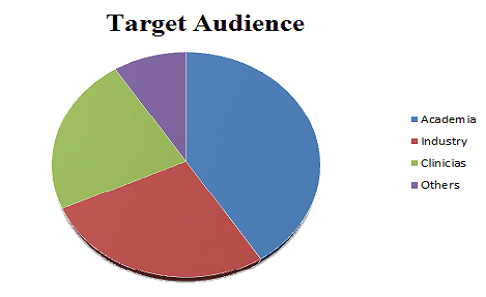
Related Companies
- Gilead Sciences
- Pfizer
- Abbott Laboratories
- Merck & Co
- Eli Lilly
- Astellas Pharma
- Teva Pharmaceutical Industries
- Boehringer Ingelheim
- Roche
- Mylan
- 3-D Matrix
- Agilent
- BeiGene
- BioDuro
- Fosun Pharma
Related Associations and Societies
- World Health Organization
- U.S. Food and Drug Administration (FDA)
- Natural Resources Defense Council (NRDC)
- Infectious Diseases Society of America
- World Health Assembly
- Center for a Livable Future (CLF)
- The Humane Society of the United States (HSUS)
- Alliance for the Prudent Use of Antibiotics
- Civil Society Organisations
- British Society for Antimicrobial Chemotherapy
- Pediatric Infectious Diseases Society
- Royal Society of Medicine
- European Society of Clinical Microbiology and Infectious Diseases
- CAESAR (Central Asian & Eastern European Surveillance of Antimicrobial Resistance)
- WAAAR - World Alliance Against Antibiotic Resistance
- ReAct – Action on Antibiotic Resistance
- American Medical Association
Conference Highlights
- Antibiotics
- Antimicrobial Therapy
- Antimicrobial Peptides
- Antibiotics for Emerging & Re-Emerging Diseases
- Drug Discovery Technologies in Antibiotics
- Antibiotic Production and Delivery Method
- Microorganisms Producing Antibiotics
- Applications of Antibiotics
- Pharmacokinetics and Pharmacodynamics of Antimicrobial Drugs
- Veterinary Importance of Antibiotics
- Antibiotics for Oncology
- Antibiotics Overuse and Resistance
- Antibiotic-Resistant Bacterial Infections
- Mechanism and Evolution of Antibiotic Resistance
- Genetics of Antibiotic Resistance
- Clinical Trials of Antibiotics
- Clinical and Economic Burden of Antibiotic Resistance
- Antibiotics: Market Analysis & Business Opportunities
- Prevention and Control of Antibiotic Resistance
- New Antibiotics and Non-Antibiotic Approaches
- Current Research in Antibiotic Resistance
- The Next Generation Approach of Antibiotics
- Developing Alternatives to Antibiotics
- COVID-19 and Antibiotic Resistance
- MRSA
- Vaccines and Immunization
- Infectious Diseases
To share your views and research, please click here to register for the Conference.
To Collaborate Scientific Professionals around the World
| Conference Date | March 08-09, 2021 | ||
| Sponsors & Exhibitors |
|
||
| Speaker Opportunity Closed | |||
| Poster Opportunity Closed | Click Here to View | ||
Useful Links
Special Issues
All accepted abstracts will be published in respective Our International Journals.
- Journal of Drug Metabolism & Toxicology
- Advances in Antibiotics & Antibodies
- Drug Designing: Open Access
Abstracts will be provided with Digital Object Identifier by




















